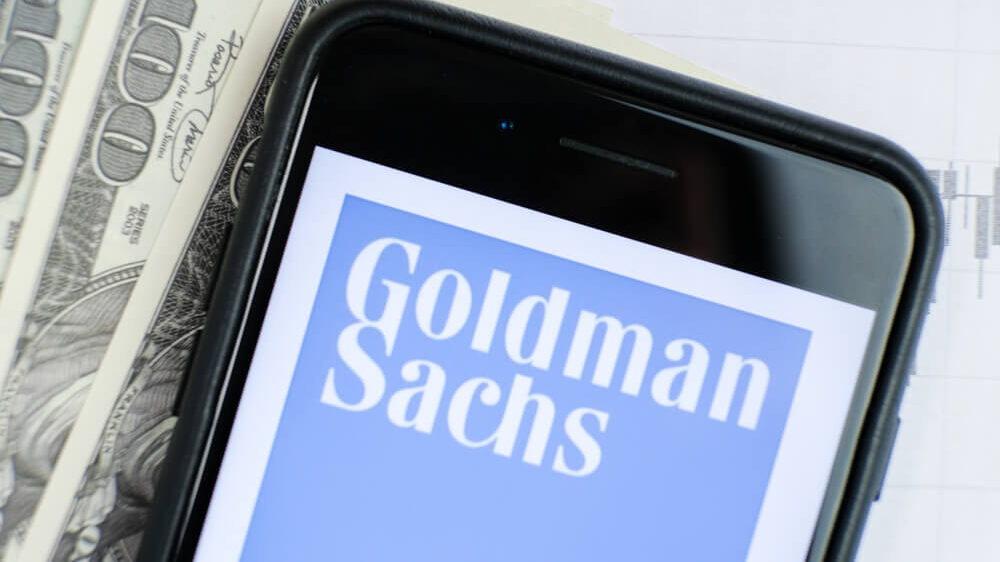For months, the watercooler chatter around big Wall Street banks focused on whether Goldman Sachs would finally pursue a major deal. Instead, Goldman’s top rival beat it to the punch.
On Thursday, Morgan Stanley (NYSE: MS) said it plans to acquire E-Trade Financial Corp. (NASDAQ: ETFC) for $13 billion, cementing its position as a hub where individuals manage their finances. If successful, it will be the biggest acquisition by a big Wall Street bank since the 2007-2009 financial crisis.
It also underlines Goldman Sachs Group Inc.’s (NYSE: GS) position as an outlier as the only big U.S. bank to not do any transformative deals during or since that time. Unlike Morgan Stanley, JPMorgan Chase & Co. (NYSE: JPM) or Bank of America Corp. (NYSE: BAC), which all executed major transactions during or after the crisis, Goldman looks much the same, analysts say.
Instead of opening its own wallet to expand, Goldman is trying to grow a fledgling retail bank, create a treasury-services business and expand in asset management, corporate lending and trading — largely all from the ground up. Asked about the matter in January, Goldman Sachs Chief Executive David Solomon dismissed the idea.
“We’re not out there looking to buy a big bank,” Solomon told Bloomberg TV.
A Goldman Sachs spokesman declined to comment on whether Morgan Stanley’s deal affects its own strategy.
Goldman was among a litany of financial firms that were rumored as suitors of E-Trade over the past year or so, as the retail trading firm looked for an acquirer. Analysts who follow Goldman and sources inside the bank have told Reuters it would not be a good deal for a variety of reasons, including technology, culture and price.
Morgan Stanley’s stock fell over 4% on Thursday after announcing the deal, which will dilute its shareholders by 10%. Goldman fell around 2%.
With Goldman’s stock value weak and with it doing less business with average investors, the E-Trade deal would have been too expensive, said David Hendler of Viola Risk Advisors.
“Morgan Stanley is better positioned to acquire E-Trade because of its higher stock valuation and more significant crossover into its network of brokers and workplace assets than Goldman Sachs,” said Hendler.
Goldman shares traded earlier this week at a 7% discount to their tangible book value while Morgan Stanley shares traded at a 42% premium, according to data from Refinitiv. In other words, the market valued Goldman stock about one-third less than Morgan Stanley stock.
Goldman entered the retail space a long time after Morgan Stanley or other U.S. rivals.
It purchased $16 billion worth of deposits from a General Electric Co. subsidiary in 2015, and has since bought a few relatively small companies to expand its presence in retail and wealth management: a personal-finance startup called Clarity Money, a retirement platform called Honest Dollar and an investment-advisory firm called United Capital.
But none of those deals gave Goldman a big pool of retail deposits or other kinds of businesses that could offset a sharp decline in trading revenue.
Michael McTamney, an analyst of big banks and brokers for credit rating service DBRS Morningstar, said Morgan Stanley’s move deal puts more pressure on Goldman.
“Goldman Sachs has, historically, been a build-up-themselves organization as opposed to making acquisitions,” McTamney said. “Now there will be more questions from investors about whether acquisitions are needed.”
Dealmaker-in-Chief
Associates say that Solomon is staking his legacy on turning Goldman into a global, full-service financial services firm that can compete with rivals. His predecessor, Lloyd Blankfein, has expressed regret about not acquiring during the crisis for the same kind of growth.
A longtime dealmaker, Solomon became CEO in 2018 and was instrumental in a turnaround plan that preceded his elevation. At Goldman’s first-ever investor day in late January, his management team set ambitious targets to grow the bank’s consumer division over the next five years.
Goldman may be able to do that without an acquisition, but a deal would help, said Dick Bove, a senior research analyst at Odeon Capital.
“If they acquire a bank, which will bring in low-cost deposits, I think that would be a big plus,” he said.
“Goldman, clearly under Blankfein, missed the boat.”
© Copyright Thomson Reuters 2020.
